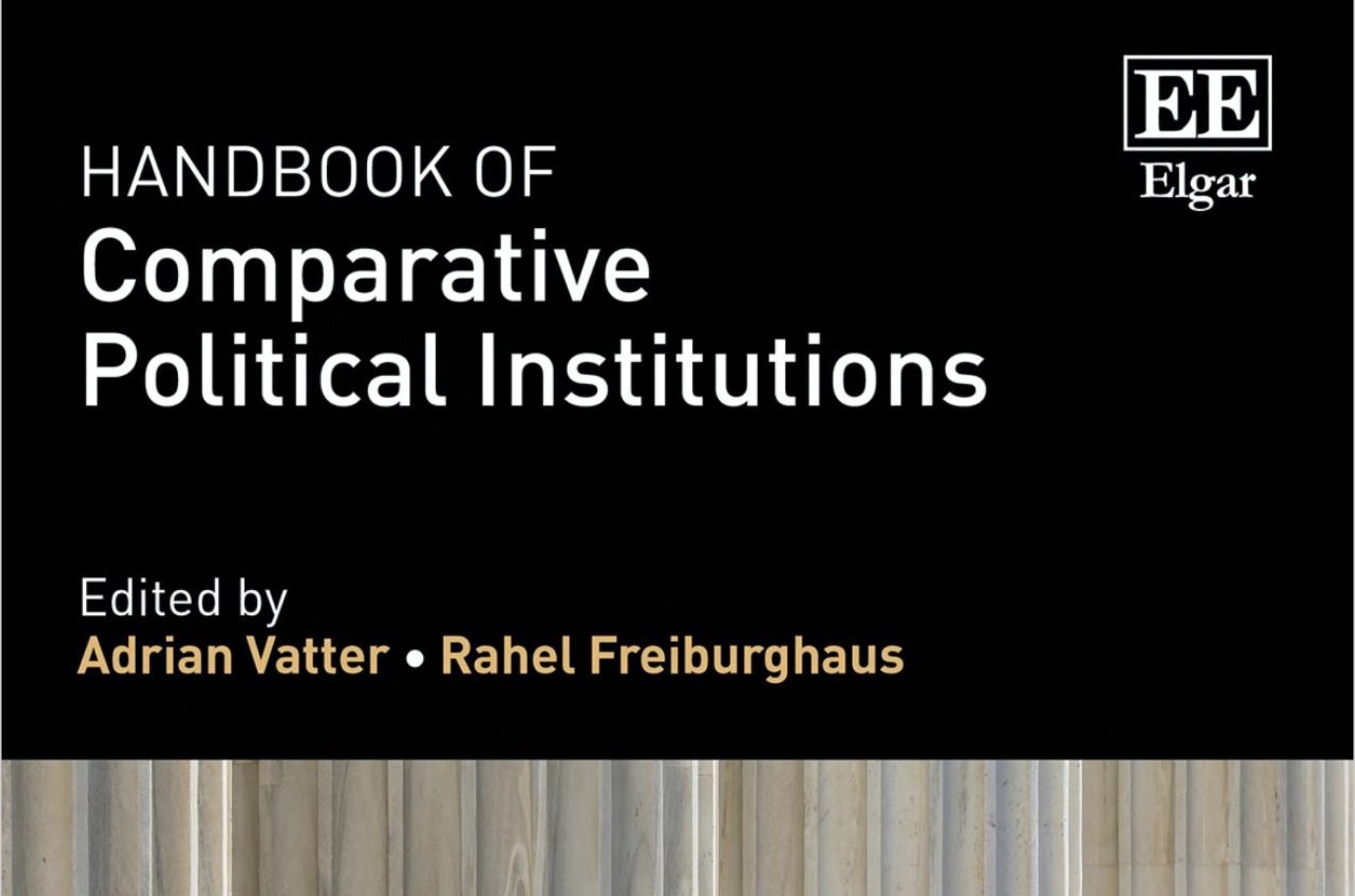RESPOND’s analytical framework is showcased in a new publication on comparative political institutions

RESPOND has marked its first publication with a chapter in the newly released Handbook of Comparative Political Institutions (Edward Elgar). Titled “Political Institutions and the Corruption of Politics”, the chapter and soon available as Open Access, the chapter introduces RESPOND’s analytical framework designed to assess corruption within political institutions. This framework provides insights into the dynamic interactions between different types of players within key arenas, aiming to enhance the understanding of political corruption and undue influence and their impact on democracy.
The chapter, authored by RESPOND’s scientific coordinator Alice Mattoni, one of the project’s Work Package leaders Fernanda Odilla, and policy analyst Oksana Huss, delves into the complex relationship between legitimate forms of influence and political corruption. It explores how blurred lines between legal and illegal activities can impact political and societal structures, undermining political representation, decision-making processes, and democratic equality—key elements in maintaining robust institutions.
The Chapter introduces the “Players and Arenas” framework to exam interactions among players in five critical arenas: policy, law enforcement, civil society, media, and the market. By investigating practices such as lobbying, political finance, revolving doors, and media capture, the chapter also explores the nuanced role of corruption in shaping power dynamics and influencing decision-making at various policy cycle stages.
RESPOND’s analytical framework, hence, serves as a tool for studying political in legal grey areas. This approach aligns with the project’s broader goal: an interdisciplinary assessment of political corruption’s impact on democracy, specifically focusing on how biased decision-making and exclusion emerge within the different phases of the political cycle.
The publication, now available both online and in hard copy, is part of the Handbook of Comparative Political Institutions, edited by Adrian Vatter and Rahel Freiburghaus and published by Edward Elgar. The Handbook offers an extensive range of theoretical, methodological, and empirical perspectives on political institutions, shedding light on their diversity and evolving impact across various contexts and historical periods. Notably, select chapters are available through Open Access, allowing free access for readers worldwide.
And RESPOND’s chapter can be accessed [here] and it will be available on Open Access very soon!
